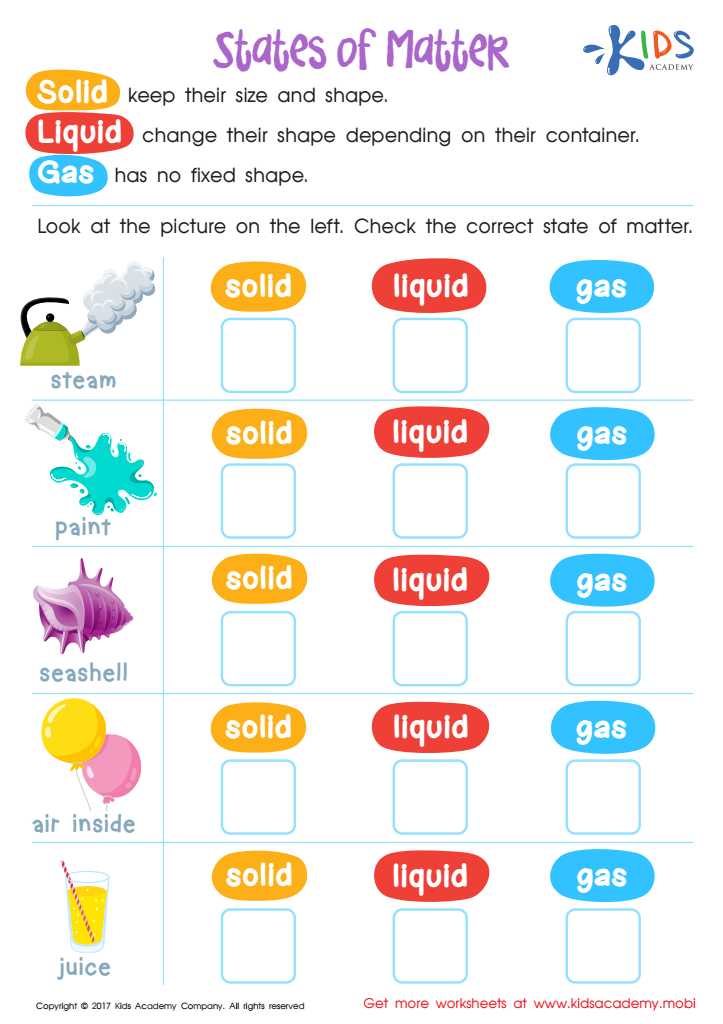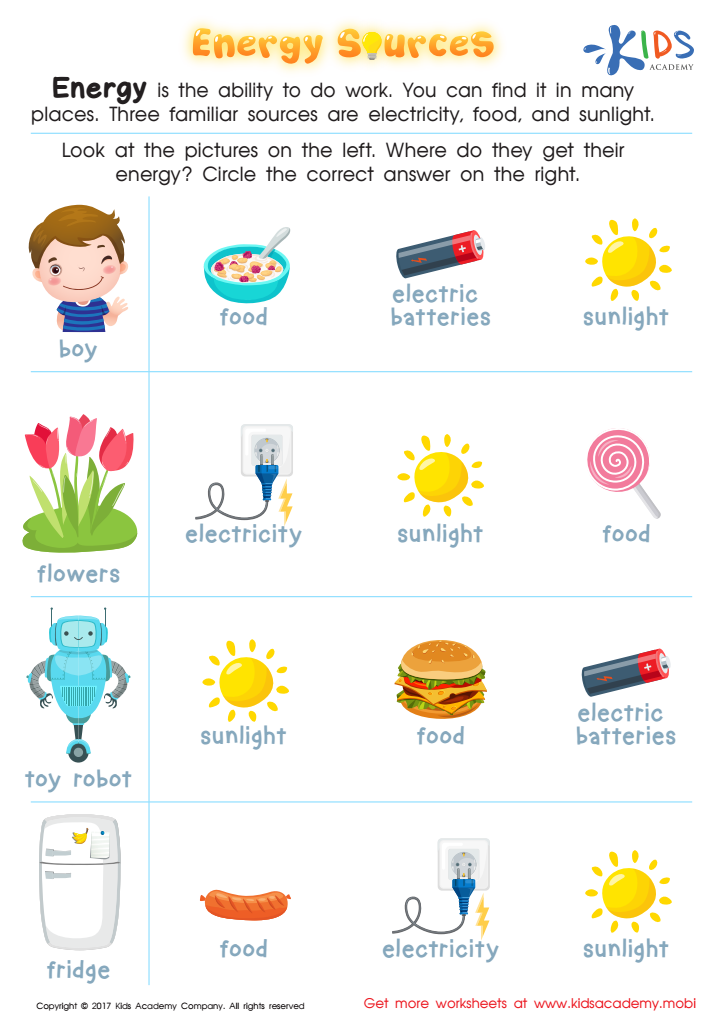Physical Science Worksheets for Ages 4-9
3 filtered results
-
From - To
Discover a vibrant collection of Physical Science worksheets tailored for children ages 4-9! Our engaging materials explore the fascinating world around us, introducing young learners to foundational scientific concepts. From basic physics principles to hands-on experiments, each worksheet is designed to spark curiosity and encourage critical thinking. Parents and educators will appreciate the easy-to-understand explanations and fun activities that make learning fun! Perfect for classroom use or at-home exploration, these worksheets promote early learning while nurturing an appreciation for science. Dive into the wonders of the physical world with our unique and interactive printables today!


Physical Science: States of Matter Worksheet


Sink or Float Printable


Energy Sources Printable
Parents and teachers should care about Physical Science for Ages 4-9 because it lays the groundwork for a child’s understanding of the world around them. During these formative years, children exhibit natural curiosity, and engaging them with basic physical science concepts—such as matter, forces, and motion—enhances their inquiry skills and fosters a love for learning.
Exploring physical science helps children develop critical thinking and problem-solving abilities. Activities like experimenting with simple machines or observing the effects of gravity encourage them to ask questions, make predictions, and draw conclusions. This hands-on approach makes learning memorable, boosts creativity, and inspires a sense of wonder about how things work.
Furthermore, physical science education can promote foundational skills in literacy and numeracy. Learning scientific vocabulary expands language skills, while hands-on experiments involve measurement and counting, weaving in pivotal math concepts.
Awareness of physical science also nurtures future interests in STEM careers. By sparking excitement and building a strong scientific foundation, educators and parents play a crucial role in shaping informed citizens who appreciate scientific principles and are equipped to tackle future challenges. In essence, prioritizing physical science in early education is an investment in a child's comprehensive development and future potential.
 Assign to My Students
Assign to My Students















